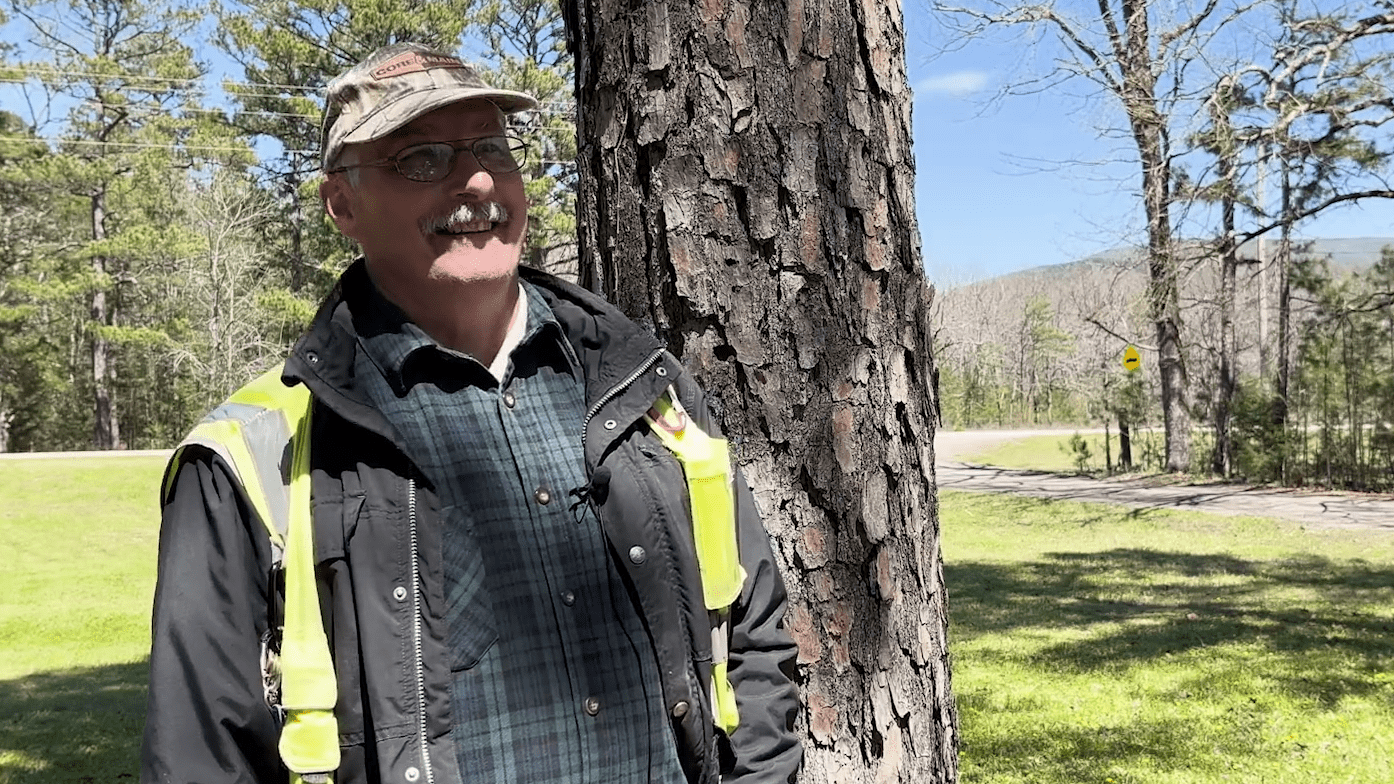When posed a question about why he does what he does for a living, John Butler needed time to think to collect his thoughts.
“Why am I a water operator?” Butler asked himself.
While it may seem like a relatively straightforward question, the job of a water operator can be incredibly challenging for several reasons.
Water operators are more than just meter readers; they’re dedicated to ensuring everyone on the water line, including themselves, has access to safe water. Like first responders or the electric company, they work diligently, around the clock, in all weather conditions to maintain water quality, and promptly resolve any issues to restore water supply, recognizing its critical importance.
It’s not an easy job by any measure. It’s a job one must have a deep passion for and truly love the day-to-day grind.
So why are you a water operator, John?
“Well, I work in a beautiful part of the country,” said Butler, who is the operator of Rural Water District #17 in LeFlore County, located in mountainous southeast Oklahoma. “I get outside. I mean I’m getting older, so it keeps me busy and active. I’m not sitting in a chair somewhere all day. It’s a fulfilling job and it’s good to know that you’ve solved a problem. You figured something out.”

For those not familiar, the job of a water operator requires a diverse skillet. One must possess a combination of technical knowledge, attention to detail, problem-solving skills, and a commitment to ensuring the safety and quality of drinking water for a community.
While it’s an often-overlooked job to the public eye, one thing is clear about water operators: they are the unsung heroes of your community.
“Water operators, a lot of times the public view them as unskilled labor because they see them fixing their line break on the side of the road,” said Gaylene Riley, Oklahoma State Coordinator in Community Infrastructure at Communities Unlimited. “There’s a lot that an operator, a good operator must know. They must have a good knowledge of chemistry and sometimes biology and microbiology. But they also, they’re the one public health official that stands between a person and illness.
“Because, you know, a doctor can treat your illness, but a water operator can prevent an illness by doing their job right.”
Butler has been around RWD#17 LeFlore since its inception in 1999-2000, working two different stints as the system’s operator in a six-and-a-half-year span. He started as an operator in 2000 and resigned in 2003 following a disagreement with the previous water board about fund allocations needing to go in the water line that didn’t.
After two decades of struggle in the water department, a new board was elected and aggressively pursued and earned a slew of grants and additional funding to help the district right the ship. That board coaxed Butler into returning as the water operator around the same time.
Why return after a 20-year break?
“There's a lot of people in the valley who can do this job but dedicating yourself to doing the job is another thing. It's not just doing a test here and a test there and fixing the leak here and a leak there, it is looking at what is coming, what must be done."
— John Butler, Operator, Leflore RWD#17
“There are things we must do daily, weekly, monthly, quarterly, annually, semi-annually. Valves need to be exercised, tests must be done on schedule, and you must be able to develop a good relationship with the people you work with across the state. ORWA (Oklahoma Rural Water Association), DEQ (Division of Environmental Quality), Communities Unlimited (CU), USDA (United States Department of Agriculture), Department of Interior, all of them. It’s understanding that people want to help and not being isolated and alone because down here you can feel alone because we are far away. The nearest gas station is 20 miles south and you hope it’s open.”
Riley knows just how important quality rural water systems are for the public. As someone from a rural area, she grew up in a house that had a well and there was a faucet on the outside of the house but there was not indoor plumbing.
So, her family had to use an outhouse, had to drag a tub inside the house, and heat up their water to take a bath.
“When you’ve experienced that, you know how important it is for people who live in rural areas, not only in Oklahoma but across America, to have good clean water coming into their homes,” Riley said. “That’s where a lot of the passion for this work comes from, with not only me but people and operators, that grew up that way or they’ve lived in an area where they’ve had to haul water.”
In his role as a water operator, Butler sees his work as another means of serving his community, alongside his involvement in running the local food center and preaching at the church. He believes his service is a calling from the Lord, and he credits divine providence for enabling him to contribute in various ways.
Butler’s days as a water operator are winding down. He’s already in the process of training a replacement and looks to retire potentially in the next year or so. But before he hangs up his tools for good, Butler wants to know with confidence RWD#17 LeFlore County is set up to be sustainable for the foreseeable future.
“None of us are going to be here forever but we want to leave a legacy of good clean water and a sustainable able to run system that people can be proud of,” Butler said.

